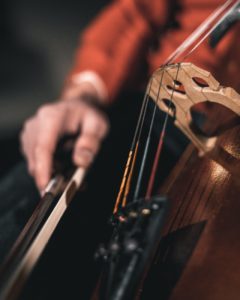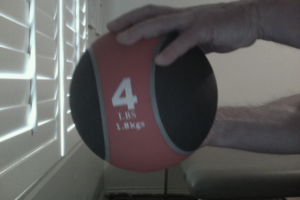Is there an ideal, universal, one-size-fits-all objective that musicians have when practicing something they perceive as being “difficult”?
Well, certainly the most obvious objective is to become functionally proficient with the very thing that’s being practiced.
But there are typically several other aims nested inside that main objective when practicing difficult music.
How about you? What is it that you want when practicing something significantly outside of your comfort zone?
It’s usually a lot more than just getting the notes “under your fingers”, so to speak. Don’t you think?
You probably want to be able to play whatever it is you’re working on with beautiful tone, good intonation, time, feel, expressive nuance, accurate details (like articulation and dynamics), and conviction.
You might also have a specific goal in mind regarding the tempo, or the key, or with the range.
All of these are reasonable and worthy goals, integrated into the overall goal of becoming proficient with the music that challenges you.
I share these goals, as well, and keep them in my consciousness when practicing anything difficult.
But I have one main objective that I give even higher priority to than the music itself when practicing anything outside of my own comfort zone:
Optimizing the quality of how I react moment to moment as I play.
More specifically, optimizing the quality of what I do with my entire self as I play:
“Am I free and mobile?”
“Am I in reasonable balance?”
“Is my breathing easy, expansive and reflexive?”
“Are my eyes lively and engaged, but soft?”
“Am I organizing myself to go lightly upward?”
“Am I connected to (and supported by) the ground?”
“Is my attention flexible and responsive?”
These questions I’ve mentioned above reflect many of the aims and benefits of studying the Alexander Technique. In the simplest sense, the Alexander Technique helps me to react more favorably to my musical (and technical) aims and desires when practicing.
This is especially important when working on anything that I find challenging to me as a saxophonist and/or improviser. By paying attention to (and gaining domain over) my reactions (i.e.,how I move, maintain balance and perceive myself and the music) I cultivate two very important skills:
1. Being able to use my entire self in such a way as to give me the greatest chance of success in actually playing the music (because I’m working in harmony with my human design).
2. Building a constructive attitude and consciousness that becomes the norm in musical performance.
You are not here to do exercises, nor to learn to do something right, but to get able to meet a stimulus that always puts you in the wrong and to learn to deal with it.
-F.M. Alexander, founder of the Alexander Technique
Alexander went on to say that one of the main aims of his work was to help us to more effectively and confidently go from “the known, to the unknown.”
And for a musician, practicing or playing anything perceived as being “difficult”, is, by definition, a step into the unknown.
Alexander describes prioritizing this “quality of process” as the means-whereby. When I pay attention to quality of the the means-whereby, I simply play better and learn more efficiently.
So, for example, I increase the tempo of a particular exercise only if I can do so and still maintain a reasonably good use of myself. I won’t move the metronome up a few beats-per-minute at the expense of taking myself out of optimal coordination. It makes no sense to do so. There is nothing positive to be gained from doing so.
It is this very principle that most informs how I work with a musician when teaching the Alexander Technique. So many musicians that come to me for help are literally “un-coordinating” themselves when playing music that challenges them. As they learn to stop doing this, the doorway to their potential becomes open and clear.
So notice how you’re reacting moment to moment the next time you’re working on something outside of your comfort zone. What do you do as you prepare to play each phrase?
Do you compress yourself? Do you tighten your neck and jaw? Do you lock your joints? Do you knit your brow?
See if you can react in a freer, more elastic, and expansive way. Let your neck be free and let yourself be supported by the ground. Organize yourself upwards in a light and lively manner, allowing yourself to release so that you can approach the music with ease, confidence, curiosity and joy.



